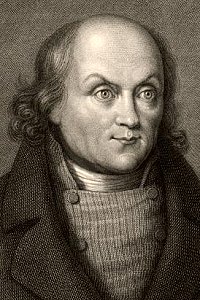Introduction

Words: John Fawcett, Hymns Adapted to the Circumstance of Public Worship (Leeds, England: 1782). This hymn was sung in the 1940 movie Our Town, which was nominated for several Academy Awards.
Music: Dennis Hans G. Nägeli (1773–1836). Arranged by Lowell Mason in The Psaltery, 1845 (🔊 pdf nwc).
Alternate Tune:
- Boylston Lowell Mason, 1832 (🔊 pdf nwc)

National Portrait Gallery
